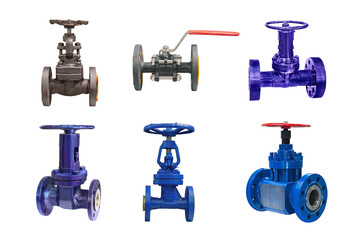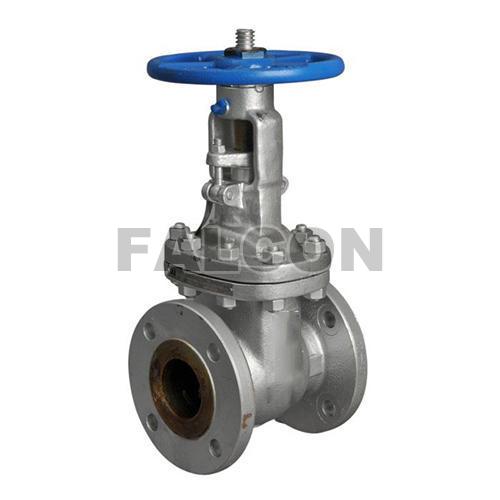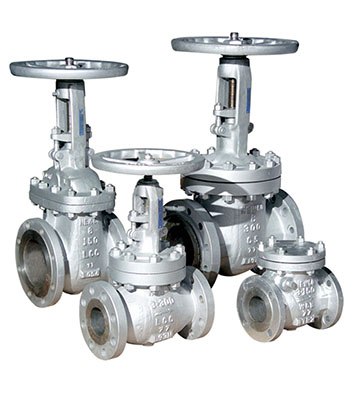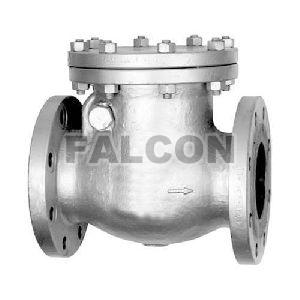Cast Steel Valves Manufacturers India
Best Manufacturers supplier & Expoter from India


Cast Steel Check Valve

Cast Steel Check Valve

Cast Steel Check Valve
Why Choose Falcon Valves ?
Falcon valves offer energy efficiency, durable materials, and high flow capacity, suitable for diverse industrial needs. They ensure reliable performance even at low pressures, simplify maintenance with easy coil replacement, and meet stringent safety certifications, making them an ideal choice for efficient, versatile, and safe valve operations.
Send Equiry Now
FAQs
What is the lifespan of a cast steel valve?
Cast steel valves typically last 20-30 years, depending on maintenance and operating conditions.
Are cast steel valves suitable for cryogenic applications?
Yes, with appropriate materials and coatings, cast steel valves can handle cryogenic temperatures effectively.
How to identify quality issues in cast steel valves?
Signs include visible cracks, irregular flow, and unusual noises during operation.
Can cast steel valves handle corrosive fluids?
Yes, with corrosion-resistant coatings or linings, they can manage aggressive fluids.
What are the cost factors for cast steel valves?
Costs depend on size, material grade, design, and additional features like automation.
Cast Steel Valves Manufacturers India
Cast steel valves are indispensable components in modern industries, serving as critical tools for controlling and regulating the flow of fluids. From oil refineries to power plants, these robust devices ensure operational efficiency and safety. In this comprehensive guide, we’ll explore the versatility, benefits, and innovations surrounding cast steel valves, providing insights into their role in industrial processes.
Key Components of Cast Steel Valves
Every cast steel valve consists of fundamental components:
- Body: The main structure that houses internal parts and connects to pipelines.
- Bonnet: A closure for the valve body, providing access for maintenance.
- Trim: Internal components, including the stem, disc, and seat, essential for flow regulation.
- Actuator: A mechanism for manual, pneumatic, or electric operation.
Cast Steel vs. Other Valve Materials
Cast steel valves stand out due to their balance of strength and affordability. While bronze and stainless steel valves excel in specific scenarios, cast steel offers an optimal mix of performance and cost for high-pressure and high-temperature environments.
Types of Cast Steel Valves
The versatility of cast steel valves is evident in their range of types, each suited for specific applications:
Gate Valves
Gate valves are primarily used for on/off control. Their ability to fully open or close the flow makes them ideal for applications where tight shutoff is critical.
Globe Valves
Designed for precise flow control, globe valves excel in applications requiring throttling. Their unique design minimizes leakage, making them suitable for critical systems.
Ball Valves
Ball valves are known for their simplicity and durability. The quarter-turn mechanism ensures quick and reliable operation, even under high pressure.
Check Valves
Check valves prevent backflow, protecting equipment and pipelines from damage. These self-activating valves are widely used in water and gas systems.
Butterfly Valves
Butterfly valves are lightweight and compact, offering efficient flow regulation in large pipelines.
What are Cast Steel Valves?
Cast steel valves are industrial valves crafted using cast steel, a material renowned for its strength and durability. Unlike forged valves, these are created by pouring molten steel into molds, resulting in components with uniform composition and precision. This method allows manufacturers to produce valves in various sizes and designs, catering to diverse industrial needs.
Key characteristics of cast steel valves include:
- High resistance to extreme temperatures and pressures.
- Ability to withstand corrosive environments with appropriate coatings.
- Adaptability for handling liquids, gases, and semi-solids.
Applications of Cast Steel Valves
Use in Oil and Gas Industries
In oil and gas, cast steel valves manage the high-pressure transport of hydrocarbons. Their durability ensures reliable operation in harsh offshore and onshore environments.
Applications in Power Plants
Power plants rely on cast steel valves to regulate steam and water flow in boilers and turbines. Their ability to handle extreme temperatures is critical in these setups.
Role in Water Treatment Systems
From controlling water intake to managing wastewater discharge, cast steel valves are integral to ensuring efficient water treatment.
Utilization in Chemical Processing Plants
Chemical industries demand valves that can withstand corrosive substances and high pressures. Cast steel valves, with specialized coatings, meet these stringent requirements.
Benefits of Cast Steel Valves
Durability and Longevity
Cast steel valves are built to last, reducing the need for frequent replacements and ensuring long-term cost savings.
Versatility Across Applications
These valves are compatible with a wide range of media, including liquids, gases, and slurries, making them ideal for diverse industries.
Resistance to High Pressure and Temperature
With their robust construction, cast steel valves can endure demanding operational conditions without compromising performance.
